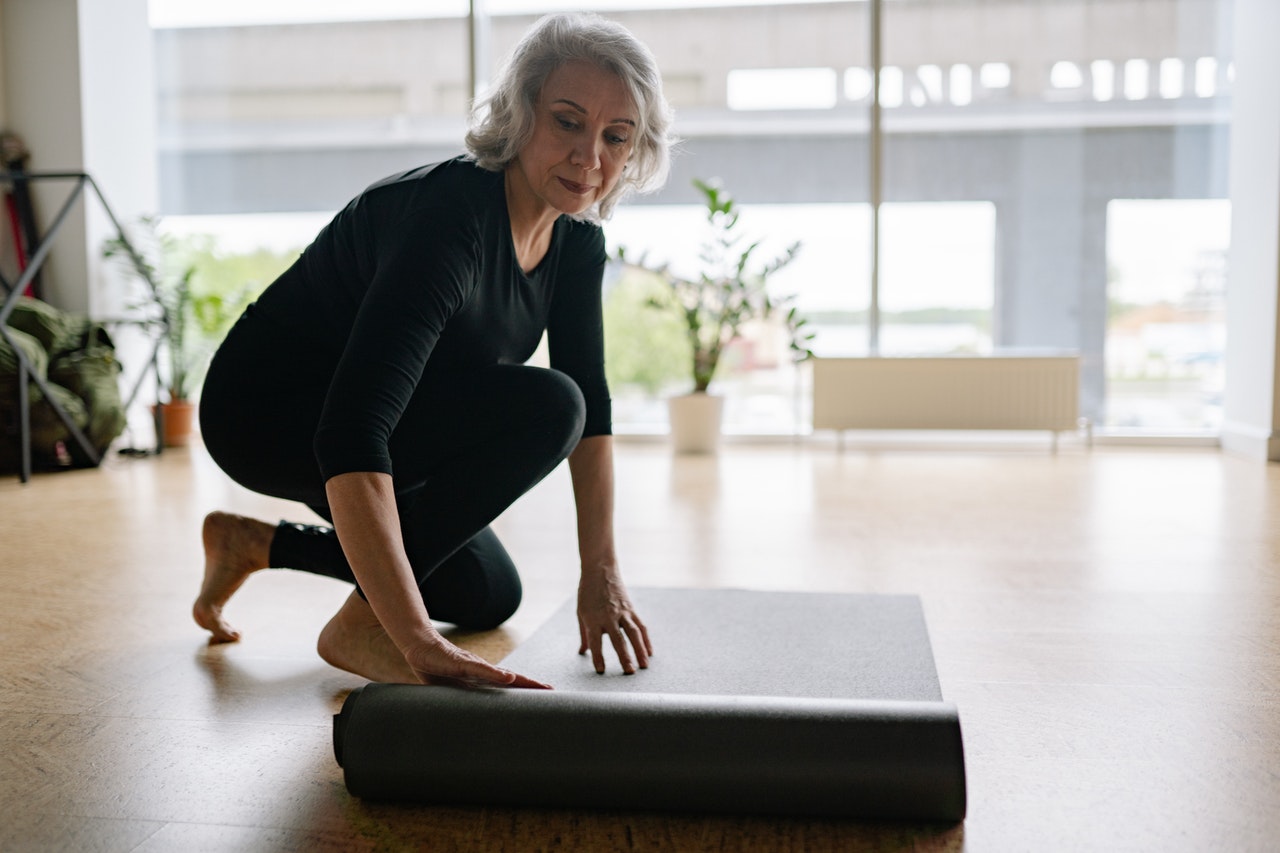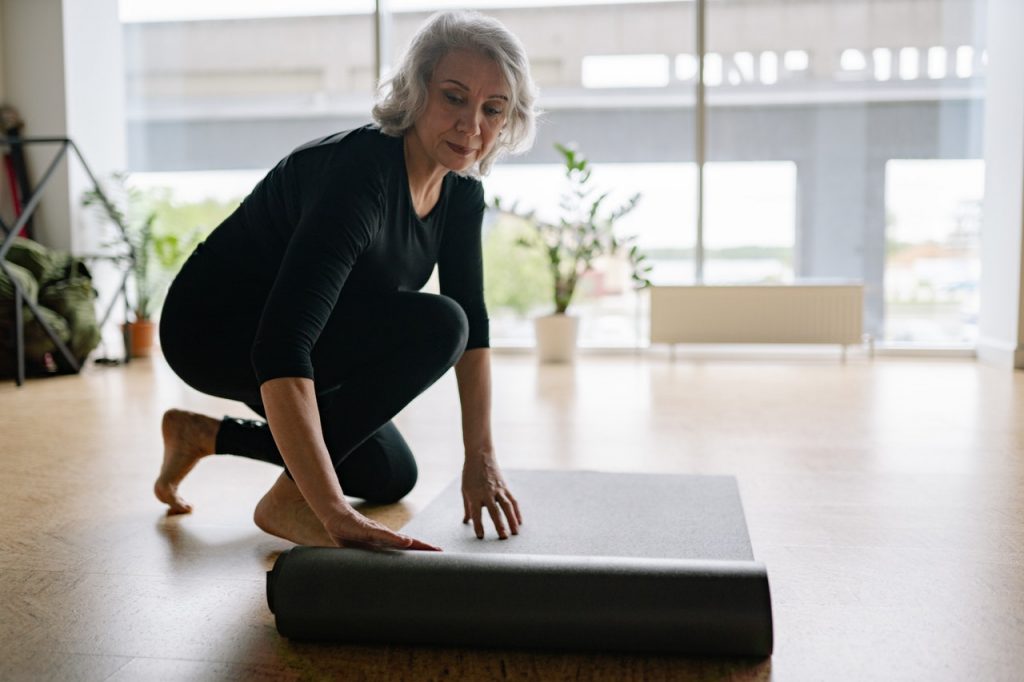How to build healthy habits that last
Do you have plans to improve your health and wellbeing in 2022? Follow our tips for creating healthy habits that last well beyond January.

Here are a few helpful tips for getting yourself in the right mindset to make a positive long-term lifestyle change.
Know your reasons
What are the benefits of your proposed change? Research them and write them down to help yourself stay on track. Eyes on the prize!
Start small
Big, instant changes can be a shock to the system. Starting with tiny, incremental changes – like having one less alcoholic drink a night instead of going cold turkey – can help healthy habits stick.
Be kind to yourself
Don’t beat yourself up when you have inevitable setbacks. It takes time to build a habit and it takes time to undo a habit. Stick to your plan and try again tomorrow!
Get support
Ask a friend or family member to encourage and motivate you towards your goals. A healthcare professional, with all their knowledge and experience, can be a good support person too.
How to make 4 healthy habits part of your routine

Healthy habit 1: Move your body more
Physical activity reduces your risk of chronic diseases like obesity and heart disease. It can be any activity that gets your body moving, your breathing clearer and your heart beating faster.
You can count everyday activities like gardening and housework or taking stairs instead of the lift as physical activity, along with planned activities like walking, dancing, bike riding or swimming.
Just investigate your motivation for exercising. The point shouldn’t be to punish and push your body into a certain body ideal. It should be to get stronger and be the healthiest version of you!
Get support
- Speak to our exercise physiologist to understand what type of exercise and workout intensity is right for you. We can help you make sure the movement you start doing is safe, effective and enjoyable.
- Check our What’s On page for weekly group exercise classes, including Pilates and Thai Chi.
Learn more:

Healthy habit 2: Eat more nutritious food
Our bodies need certain foods to function properly.
The Australian Guide to Health Eating recommends eating a wide variety of nutritious foods from these food groups every day:
- Wholegrain foods to give us fibre for a healthy gut and energy for our body and brain.
- Fruit and vegetables—they’re loaded with vitamins and fibre.
- Protein foods (lean meats and poultry, fish, eggs, tofu, nuts and seeds and legumes and beans) for healthy muscles and cells.
- Dairy and alternatives to support strong, healthy bones.
Try these simple ideas for adding more nutritious foods into your diet:
- Bulk up dishes with beans, lentils or whole grains.
- Snack on fruit or vegie sticks with hummus.
- Find meat-free alternatives to foods you love—check out our recipe for Cauliflower Steak.
- Fill half your plate with vegetables, one quarter with meat and alternatives and the last quarter with cereals and grains.
To know how to eat the right amount for you, tune in to your body’s hunger and fullness signals. Practice mindful eating to hear what your body is telling you—that means eating slowly, thoughtfully and without distractions.
And don’t feel pressured to eat everything at once! Save leftovers for lunch the next day.
Get support
- Speak to our dietitians and nutritionists about food and eating.
Learn more
- How to ditch the weight loss diet
- How to eat for diabetes type 2
- Save money with our Home Eats recipes
- 6 ways to spend less on food

Healthy habit 3: Improve your relationship with alcohol
Cutting back on alcohol can improve your health in so many ways. You’ll have a stronger immune system and more energy. Your finances will be healthier. And you’ll sleep better.
You don’t need to go cold turkey—at least not on your own or right away. Instead, introduce small and gradual changes.
For example:
- Allocate alcohol-free days to your week. Do something to keep you distracted from drinking on that day, or start by having one less drink every day.
- Stick to a plan. Decide ahead of time how much you’ll drink, when you’ll start and when you’ll stop. Your plan could be to head home at 9pm or to switch to water after 4 drinks.
- Find alcohol alternatives. Look for drinks with low alcohol content – like light beers or watered-down wine – or opt for no-alcohol options such as mocktails.
- Eat before you drink. A healthy meal before you start drinking, and snacks between drinks, can help slow down alcohol absorption, helping you stay in control.
- Pace yourself. For example, avoid drinking in rounds, opt for a non-alcoholic drink between alcoholic drinks and finish one drink before you top up or start another.
Get support
It’s important to seek expert help if you think you have a problem with alcohol or other drugs.
Learn more

Healthy habit 4: Strengthen your mental health
Our mental health and wellbeing influences our thoughts, behaviour and actions. It has a huge impact on how we handle life stressors and how we interact with the people around us.
The healthy habits above help boost your mental health. Adding small acts of self-care to your daily routine is another great investment for your emotional wellbeing.
Our friends at headspace Hawthorn suggest spending as little as 5 to 10 minutes a day doing something that helps you slow down, create a routine or connect with someone.
That could be taking a walk, calling a friend, playing with a pet or meditating. You might be surprised by how much these seemingly little things make a difference on the tougher days we all face.
Get support
If you’ve been feeling down or on edge or experienced a tough life event—or just want to get something off your chest, it’s always a good idea to reach out for professional support.
A trained counsellor or psychotherapist can help you explore your thoughts and feelings in a safe, non-judgmental environment.
- Learn about our mental health services
Learn more

Make a booking
It's quick and easy to book online or you can call our friendly intake team on
03 9810 3000. We are here to help.